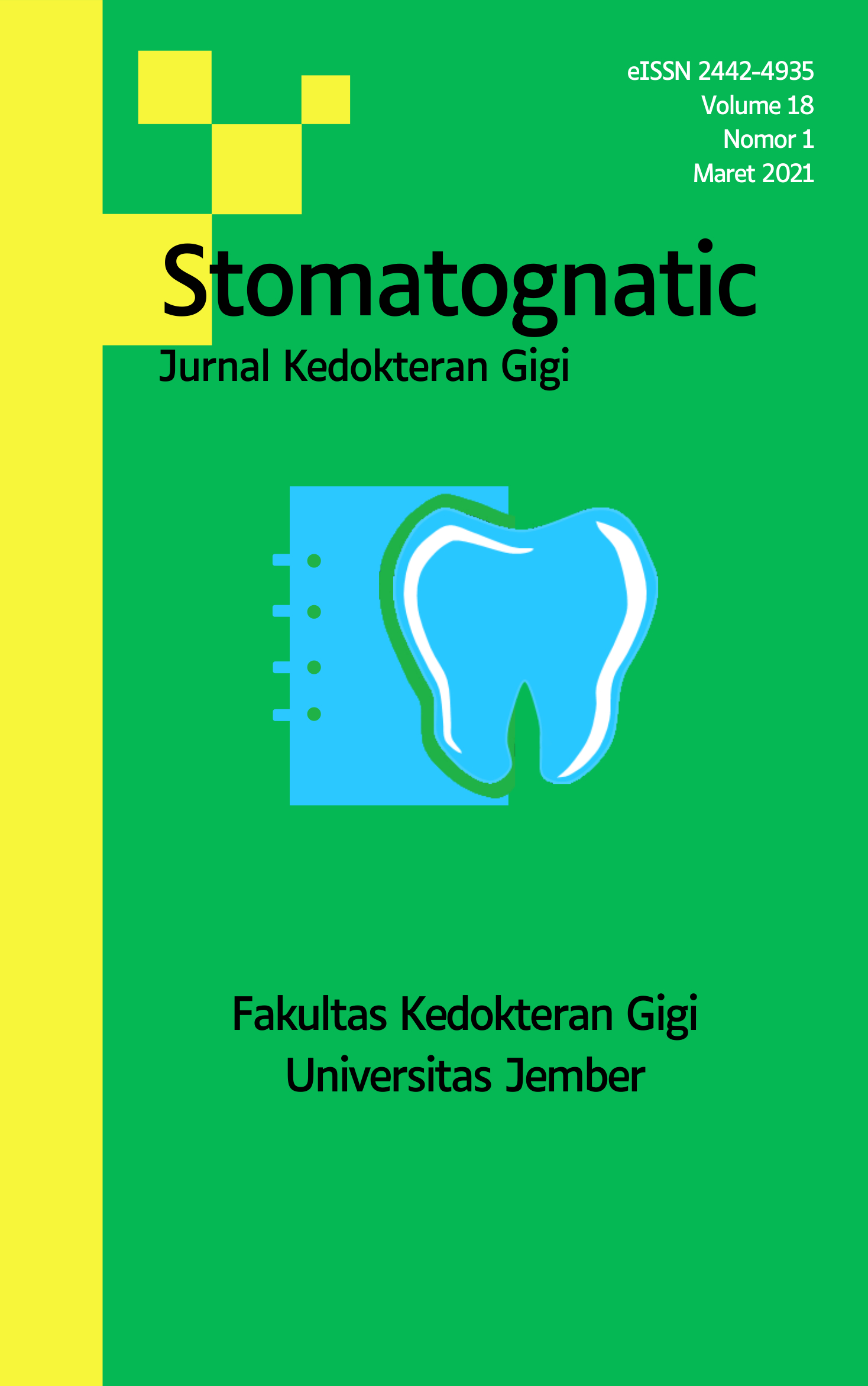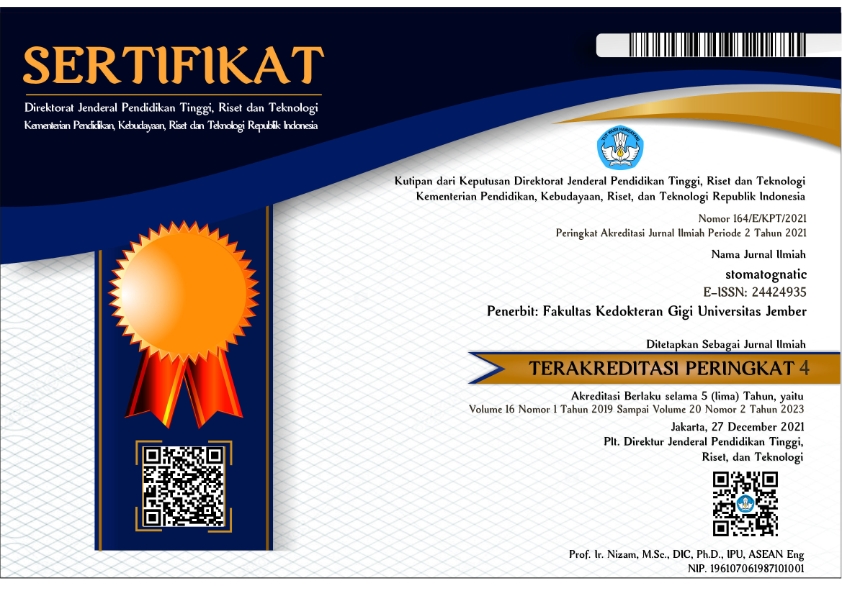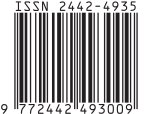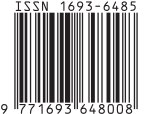Pengaruh Gel Ekstrak Daun Kenitu (Chrysophyllum cainito L.) terhadap Reepitelisasi pada Penyembuhan Luka Bakar Mukosa Bukal Tikus Wistar
Abstract
Burn therapy involves elimination of causative factors and symptomatic therapy. Kenitu leaves (Chrysophyllum cainito L.) are known to contain β-amylin acetate, Gallic acid, ursolic acid, quercetin, β-sitosterol, and other substances that have the potential to be antibacterial, antioxidant, and anti-inflammatory. The use of kenitu leaves (Chrysophyllum cainito L.) as an alternative to wound healing has low side effects and is easy to obtain, especially in Jember Regency. The aim of this study was to examine the effect of kenitu leaves (Chrysophyllum cainito L.) leaf extract gel on re-epithelialization in buccal mucosal burns of wistar rats. This type of research is experimental laboratories. This research used 32 samples which divided into four control groups and four treatment groups. Burns are made on the left buccal mucosa. In the control group the CMC placebo gel was given and the treatment group was given 2% leaf extract gel. Euthanasia was performed on days 4, 7, 10, and 13 then histological preparations were made. Measurement using software optilab viewer 2.2 and image raster 3.0. The average yield of epithelial thickness was lowest in the control group on day 4 and highest in the treatment group on day 13. The results of the One Way Anova statistical test showed a significant difference in epithelial thickness between the control group and the treatment group. This study proved that the 2% leaf extract can accelerate the process of reepithelialization in the healing of wistar mucosal mucosal burns.








